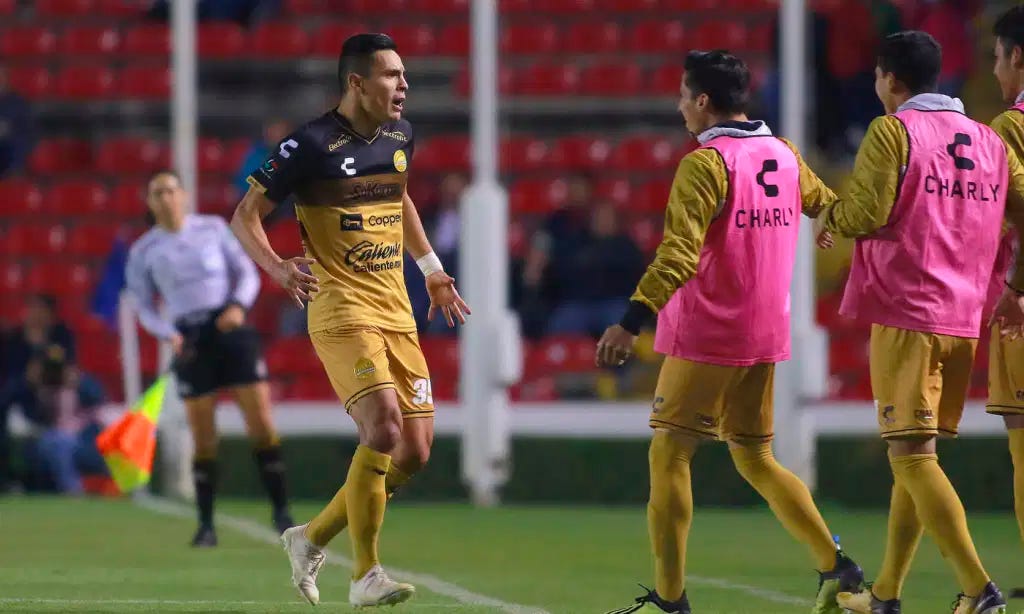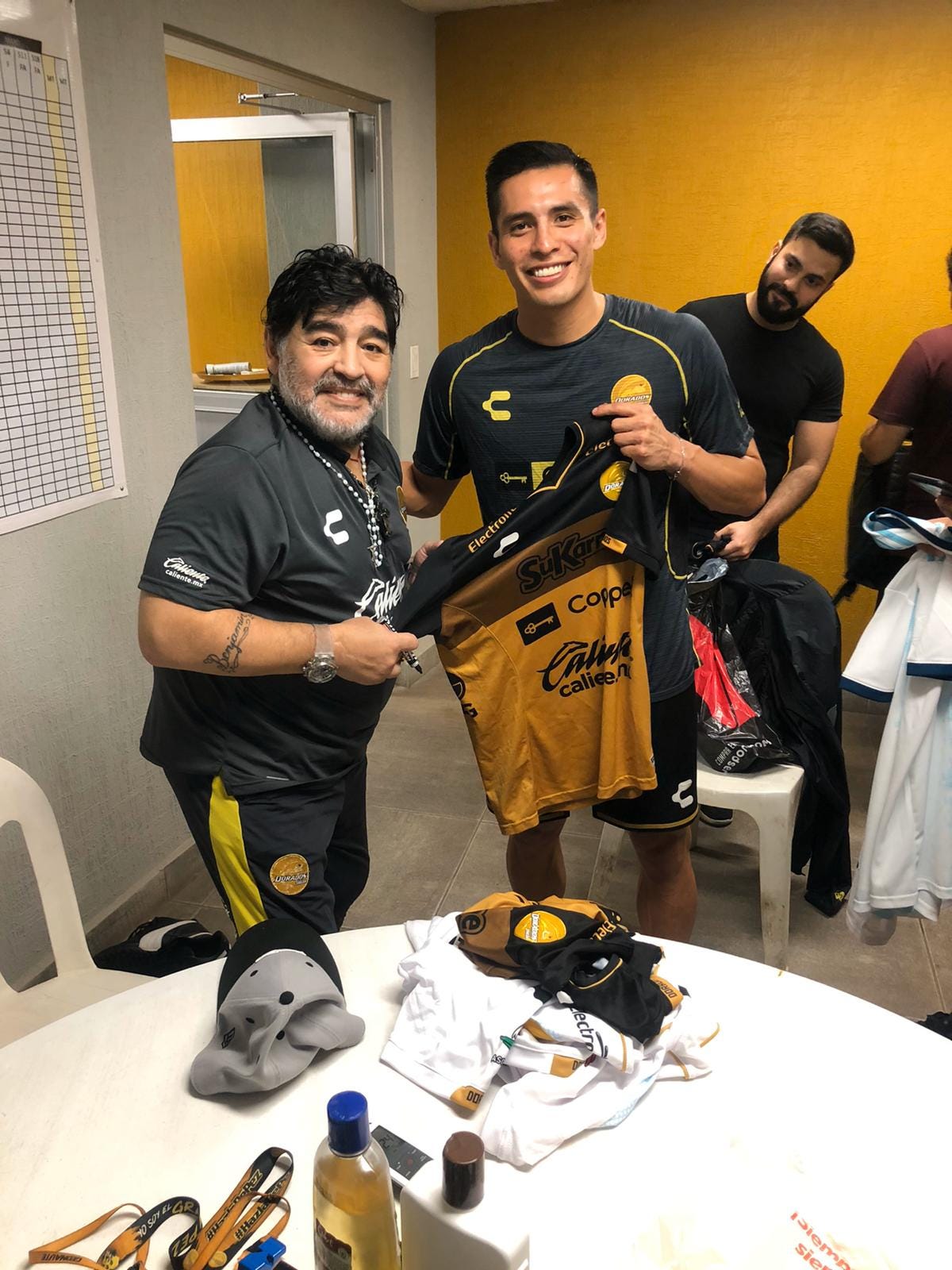The human cost of changes to the Ascenso
A pair of former U.S. youth internationals grapple with the uncertainty of the new setup.

Looking for some clarity about the massive overhaul to the Ascenso, Mexico’s second division? You’re not alone.
Even some of the people most intimately involved are in the same boat.
“I don’t have the slightest idea,” Alebrijes de Oaxaca forward Alonso Hernandez told me Tuesday.
“We don’t know much of what’s going to happen with the Ascenso,” Dorados de Sinaloa attacker Rubio Rubin told me a day later.
The former United States youth internationals each have tasted success in the Ascenso and aspired to more. Hernandez recently moved to a team with a spot in the (now-canceled) promotion playoff, while Rubin nearly achieved promotion last year while being coached by Diego Maradona. Now they’re wondering if they’ll have a place in the league once the ball starts rolling again after the coronavirus pandemic clears.
What we do know is this: Liga MX is freezing promotion and relegation for the next five years. Liga MX clubs say they’ll make payments to make sure the 12 clubs in the second division stay active and viable.
But there also the expectation, the type that so often becomes reality in Mexican soccer, that the league will put in a rule allowing only U-23 players to participate with an eye toward development. Perhaps it will be like Olympics rosters with U-23s and a few overage players on the squads.
Where does that leave players over the age of 23 like Hernandez and Rubin? That’s one of the biggest questions.
Both players are in better positions than many of their teammates and rivals. Hernandez’s registration is still with Monterrey, while Rubin is a Tijuana player. The likely scenario is that they’ll have a chance to try and impress their parent clubs and earn a spot on the roster.
Each also stressed that in the era of the coronavirus, they’re thankful to be healthy and, for the moment, financially secure. Yet, the cloud of uncertainty about the future still is taking a mental toll.
“There are days you wake up and I don’t know what’s coming for you, if you’ll have money in three or four months,” Hernandez said.
“Personally, I don’t feel like I can’t do anything else. If it’s not soccer, it’ll be something else, whatever. I even will work at McDonald’s, but it’s a really ugly feeling of uncertainty for my family. All day you think about what to do and not knowing anything does make it much more difficult.”
Rather than working in fast food, Hernandez may be well-suited for a gig as a tour guide, with stops made all over the country in the last several years. At one point, he led the third division in scoring and has played for four different Ascenso clubs, all of which he says seemed first-division ready in his eyes.
Instead of investing in the current structure, however, the El Paso native saw top division owners working against clubs like Oaxaca or Correcaminos earning promotion on the field. “The reality is that it’s not fashionable. Instead of helping or supporting you, they give you more work to do,” he said. “They find a way to be able to go up, to compete for a promotion based on sporting merits.”
That said, the Ascenso was not in a good place coming into the season. Once a 16-team league, only a dozen clubs could meet the requirements to field a squad this year. It absolutely was a league with haves and have-nots, part of the reason there’s still speculation a couple of the clubs (Atlante? UDG?) will go up just because.
Some Ascenso owners voted for the modifications because they’ll now get payments from Liga MX to help shore up the clubs.
Rubin isn’t so sure the tweaks will lead to more interest.

Rubin with his Argentine ex-manager
“The team is very special to the city of Culiacan,” said Rubin, who returned to the United States to quarantine after getting official word the Clausura was canceled. “The fans loved to come out, they loved us playing and I think they have to be hurt knowing if the Ascenso gets taken away and turned into a league of youth players, it’s going to be different.
They’ve seen their team go back to the first division, they’ve seen their team get relegated. They’ve seen everything, so it takes away a little of the ambition to follow the team. Anywhere in the world, people love to stick around for the winners or the hope of being able to get to the first division. Taking that away makes it hard to become a fan and continue to be, like, ‘OK, what am I going to watch or what am I motivated for?’ I think Mexican soccer is going to take a hit because of this”
As players have reminded fans on social media, with publicity campaigns that even included their wives and girlfriends talking about their own professions and the importance soccer plays to their families, soccer is their job.
Perhaps that understanding is why so many Liga MX players and even Mexico national team stars playing abroad like Hector Herrera, Carlos Vela and Hector Moreno have made statements supporting the players.


Both Hernandez and Rubin had heard the rumors before the season and weren’t exactly stunned to find themselves in this position.
“I think they had their decision made before the meetings or anything,” Hernandez said. “For me, the reality is that it happened like that and right now everything we did - which was a lot and everyone played their part, the wives, it’s all true! Now you just see the uncertainty, not knowing what will happen, but personally I think if we’d started to put pressure on before they let us know maybe it would’ve been different but they had the decision made and we all suffer for it.”
There is still hope a ruling will come down that will be to the benefit of the players. Who knows what that will look like? Something grandfathering in overage players? An alternative league like the upstart La Liga de Balompié Mexicano gaining strength? Or even the Mexican federation reversing course? Nothing is off the table.
Even if nothing changes, Rubin said this show of solidarity from players of all backgrounds could factor in during future debates, with the relatively new players’ association gaining momentum from the movement.
“Us players are still fighting for our rights. We’re still fighting for the league to continue,” the Oregon native said. “We’ll see where that goes. For me, I still have some time on my contract. Grupo Caliente now owns Queretaro as well Tijuana so obviously if I go back to one of those teams I’d be able to be in the first division and try and breakthrough. We’ll see. Everything is up in the air.”
For the moment, the only certainty is uncertainty.




